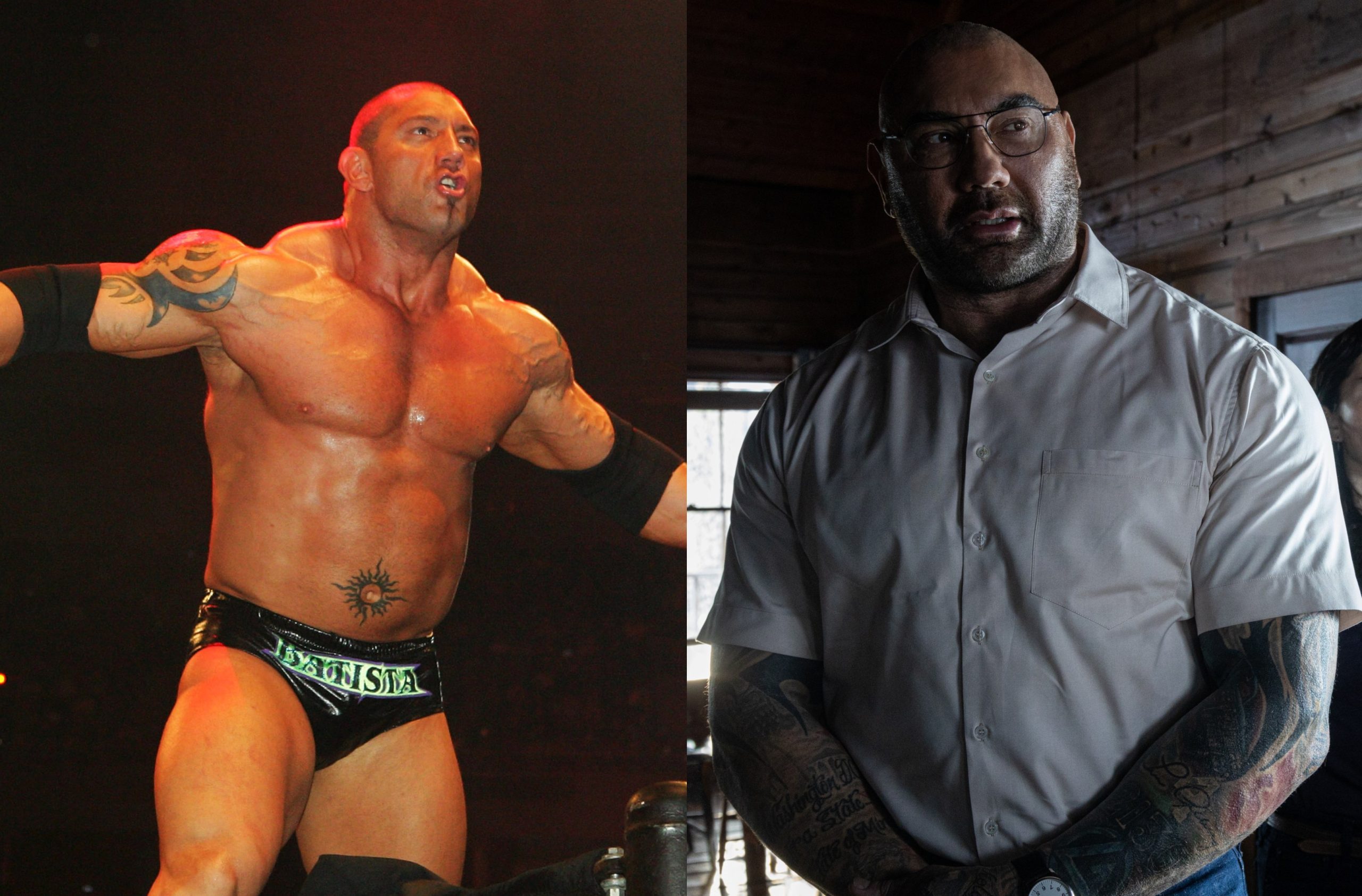
To celebrate the release of Knock At The Cabin, starring Dave Bautista, Paul Klein looks at the wrestlers who became actors. Who are they, and how on Earth did they manage to turn their wrestling personas into Hollywood stardom?
The question of who is the best wrestler-turned-actor is a debate that brings many opinions from people. It’s a classic playground discussion, just like who would win in a fight. It’s a hotly contested title, and with good reason, wrestling is all about performance. WWE proudly proclaims itself Sports-Entertainment, “staged, not fixed”.
In fact, in a conversation with Mark Kermode and Simon Mayo to promote his film Fighting with my Family, Stephen Merchant said that the sport of wrestling isn’t about fighting but winning over the crowd. The challenge in the ring is playing an archetype. You’re either a hero or a villain; winning a crowd is how wrestlers are made.
Take the Samoan battleship Dwayne “The Rock” Johnson. Despite dropping his wrestling name for professional acting gigs for almost twenty years now, Dwayne Johnson is still known worldwide as The Rock. His in-ring persona as a heroic champion of the people is one that he has taken into his film career and celebrity persona at large. The Rock has cultivated a status as a “man of the people” and might be the best example of what a wrestler-turned-actor can do.
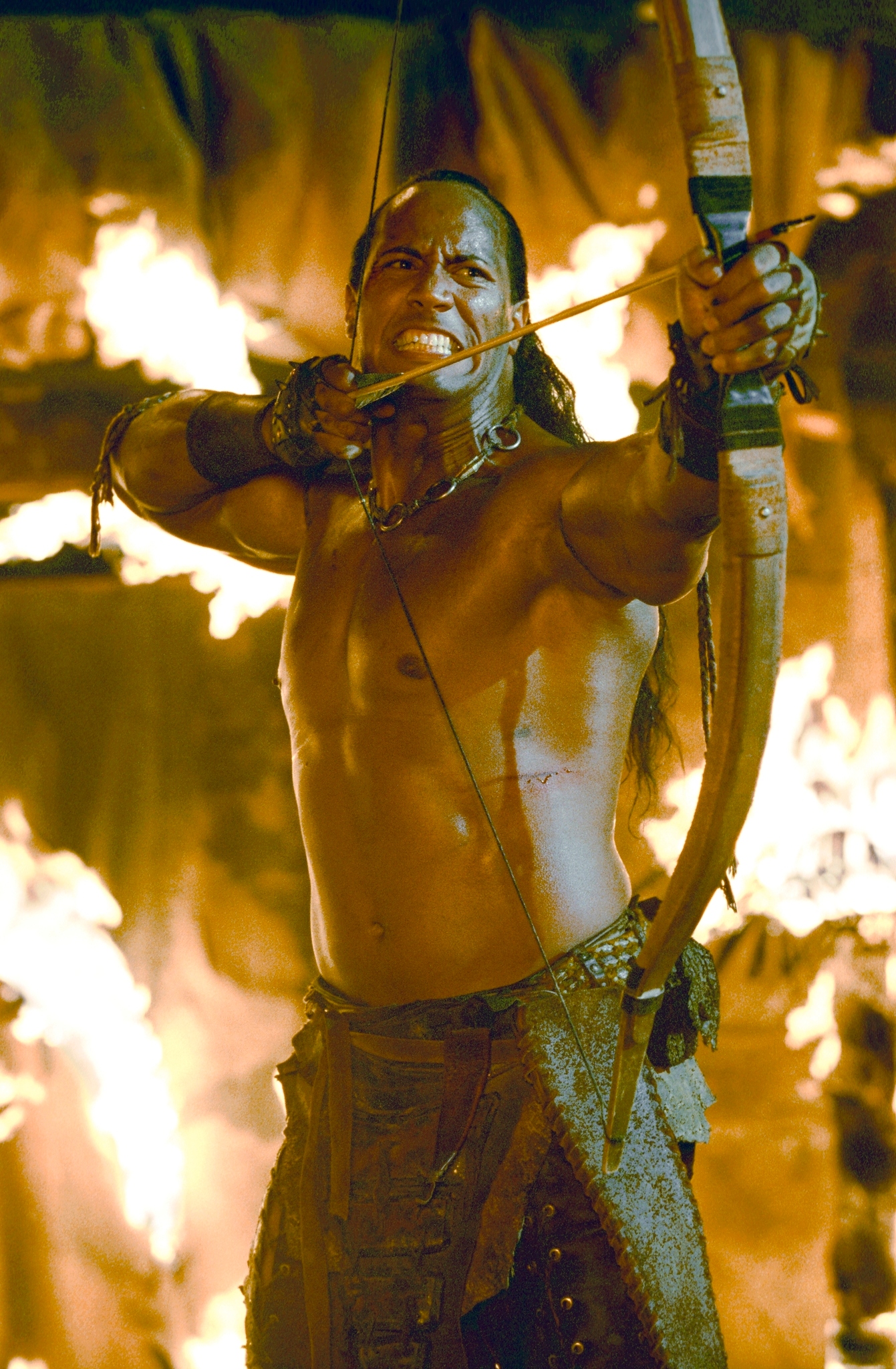
Dwayne Johnson in The Scorpion King. Credit: Universal Pictures
His transition from a supporting player in movies like The Mummy Returns and Be Cool to a bonafide leading man has been well calculated. Like many wrestlers across the years, he’s done his time in shlock B-movies, but from his days as The Scorpion King to his hierarchy-changing lead role as Black Adam, Johnson has kept a savvy business mindset while shovelling popcorn to the masses. As a producer, and entertainment force, Johnson has done everything in the arsenal of a movie star – family-friendly comedies, Disney animation, gritty dramas, and even horror, but ultimately, Johnson has always played to the masses. His star image is thbig, sometimes silly, but always noble hero figure.
Johnson might not be the first wrestler to turn to acting, but he’s arguably the most successful. The most telling aspect of Johnson’s career is revealed in a CineBlend interview where he said “I wanted to have a real, long-lasting career that had weight, and had value. And I wanted to become a real box office presence”. That last line is the key to understanding his acting choices.
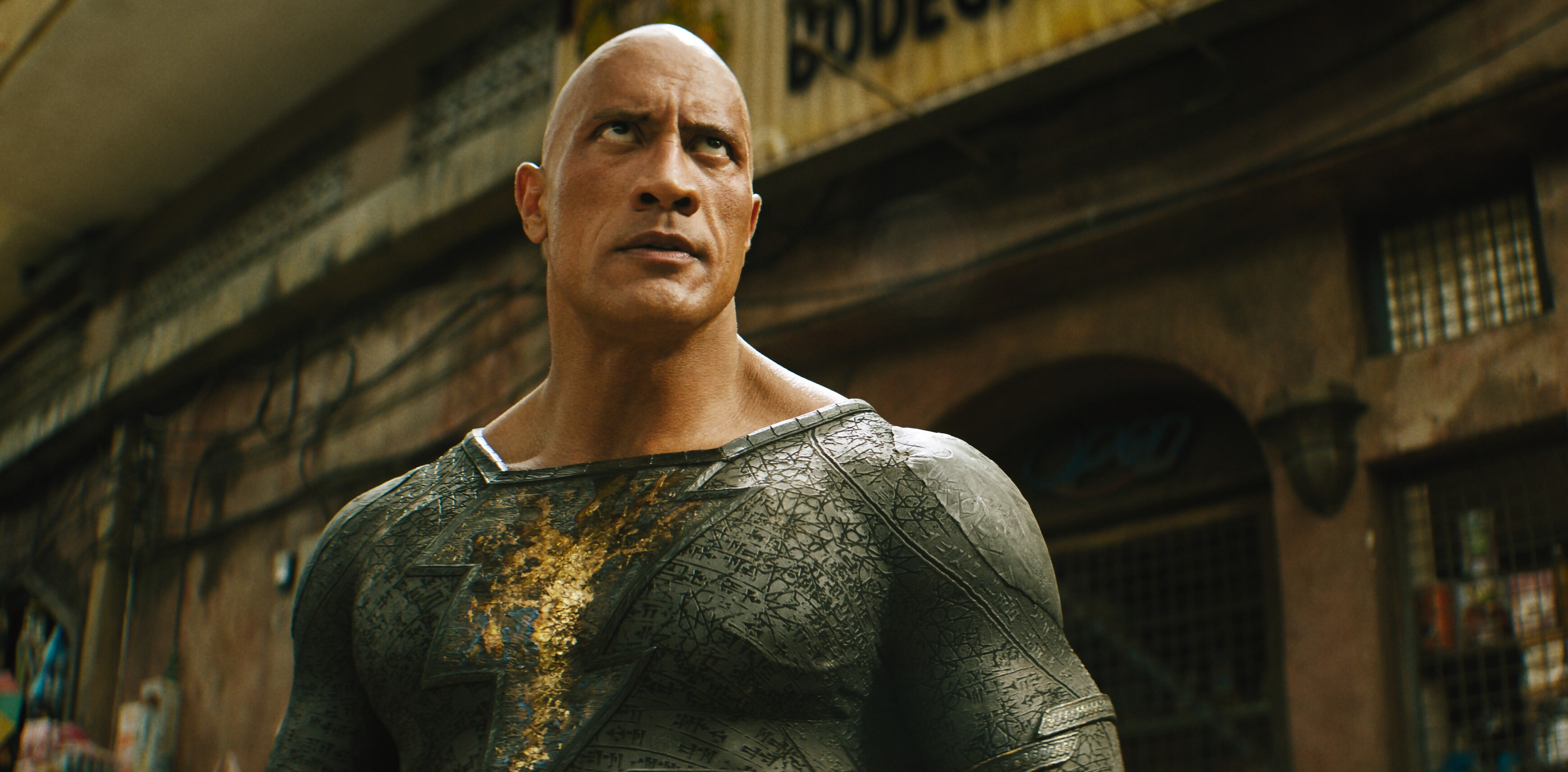
Johnson in Black Adam. Credit: Warner Bros.
Johnson treats producing films like fight promotion. Everything is done to generate the most positive buzz possible. Showing up to family screenings of his animated films in costume, greeting fans with open arms, flashing his mega-watt smile on chat-shows. It’s all done to maximise box office potential – and it has paid off. Johnson is a movie star in the same way he was a wrestling icon. He is the brand. Aiding his own mythology is his own network sitcom – Young Rock.
Juxtapose that with Dave Bautista. He too is a wrestling hero and like Johnson, Bautista has cut his teeth doing family films. He’s even done a Scorpion King film, titled The Scorpion King 3: Battle for Redemption. He’s also done some straight-to-DVD action films, but for the most part, Bautista’s acting career has been as a character actor, not a leading man. Looking at the list of directors he’s worked with is staggering – Werner Herzog, Sam Mendes, Denis Villeneuve, M. Night Shyamalan and Rian Johnson. These aren’t directors-for-hire, these are proper prestigious directors or auteurs, if you will.
Admittedly, Bautista very early on got in with Marvel Studios as hilariously humourless Drax the Destroyer in James Gunn’s Guardians of the Galaxy, a role he’s reprised a further six times since 2014. Instead of pushing himself towards a leading man status, he’s opted for smaller ensemble pieces. Even his leading role in Zach Snyder’s Army of the Dead is leading an ensemble with multiple character arcs. His body of work is punctuated by scene-stealing turns in Blade Runner 2049 and James Bond entry Spectre. The only constant in his filmography is just how surprising it continues to be.
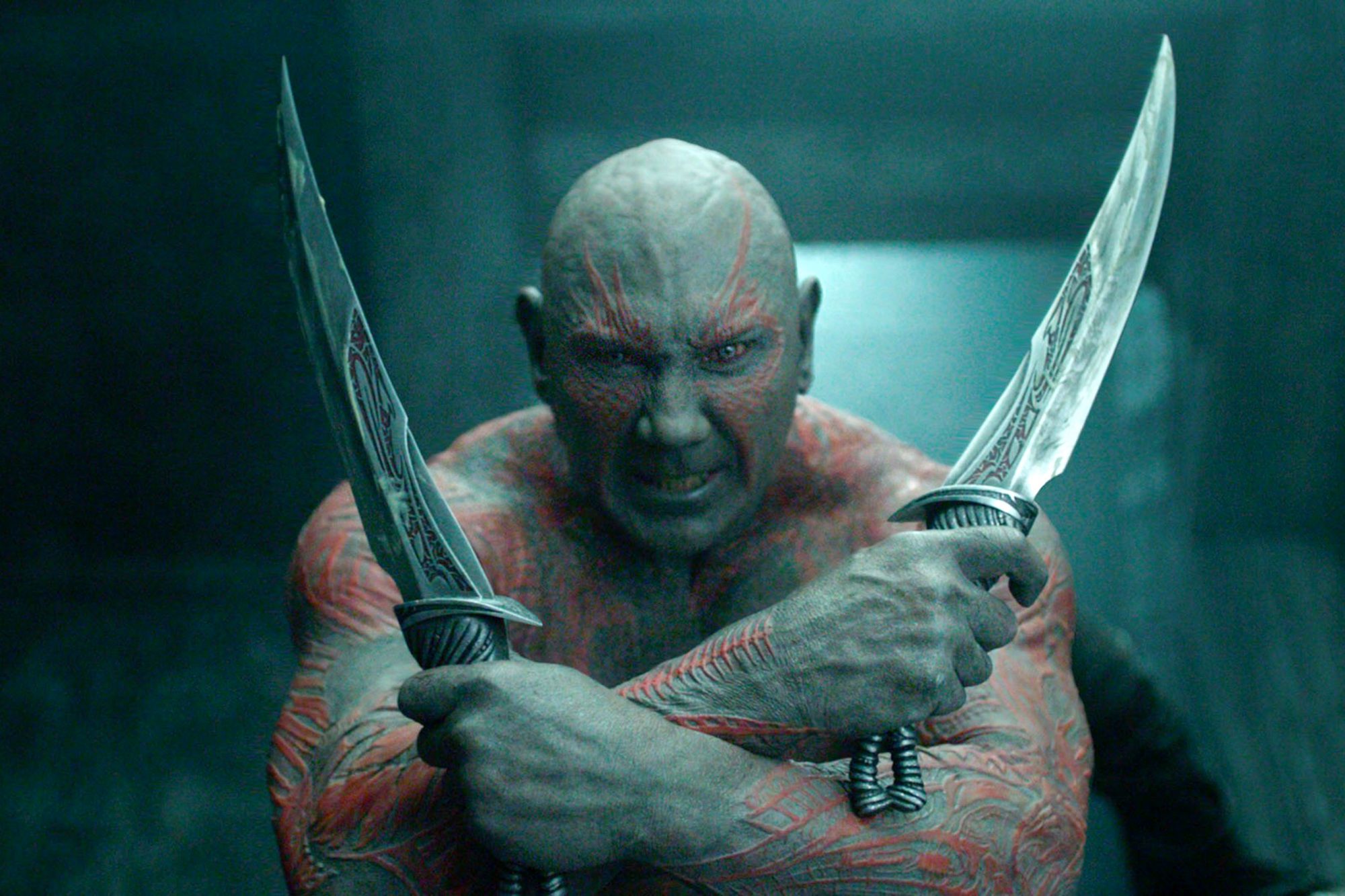
Dave Bautista in Guardians of the Galaxy. Credit: Marvel Studios
Where Bautista differs from Johnson is in wrestling. Johnson has only ever spoken about it with great affection for the ring, returning to it repeatedly and always keeping it with him. Bautista, in an interview with IWM Buzz stated that he found it to be “a toxic atmosphere” and “very competitive, very cut-throat. You’re in a piston where you have to posture all the time”.
What’s fascinating about Bautista’s comments is the fact that Hollywood isn’t all that different working environment. You’re only ever as successful as your last film. In the time Bautista has been in the business, Hollywood has been going through the reckoning of TimesUp and MeToo, exposing the toxicity that has been under the radar. Even so, Bautista is aware of the comparisons to Johnson.
“I never wanted to be the next Rock,” Bautista famously stated in a conversation with GQ. “I wanted to be a good fucking actor. A respected actor.”
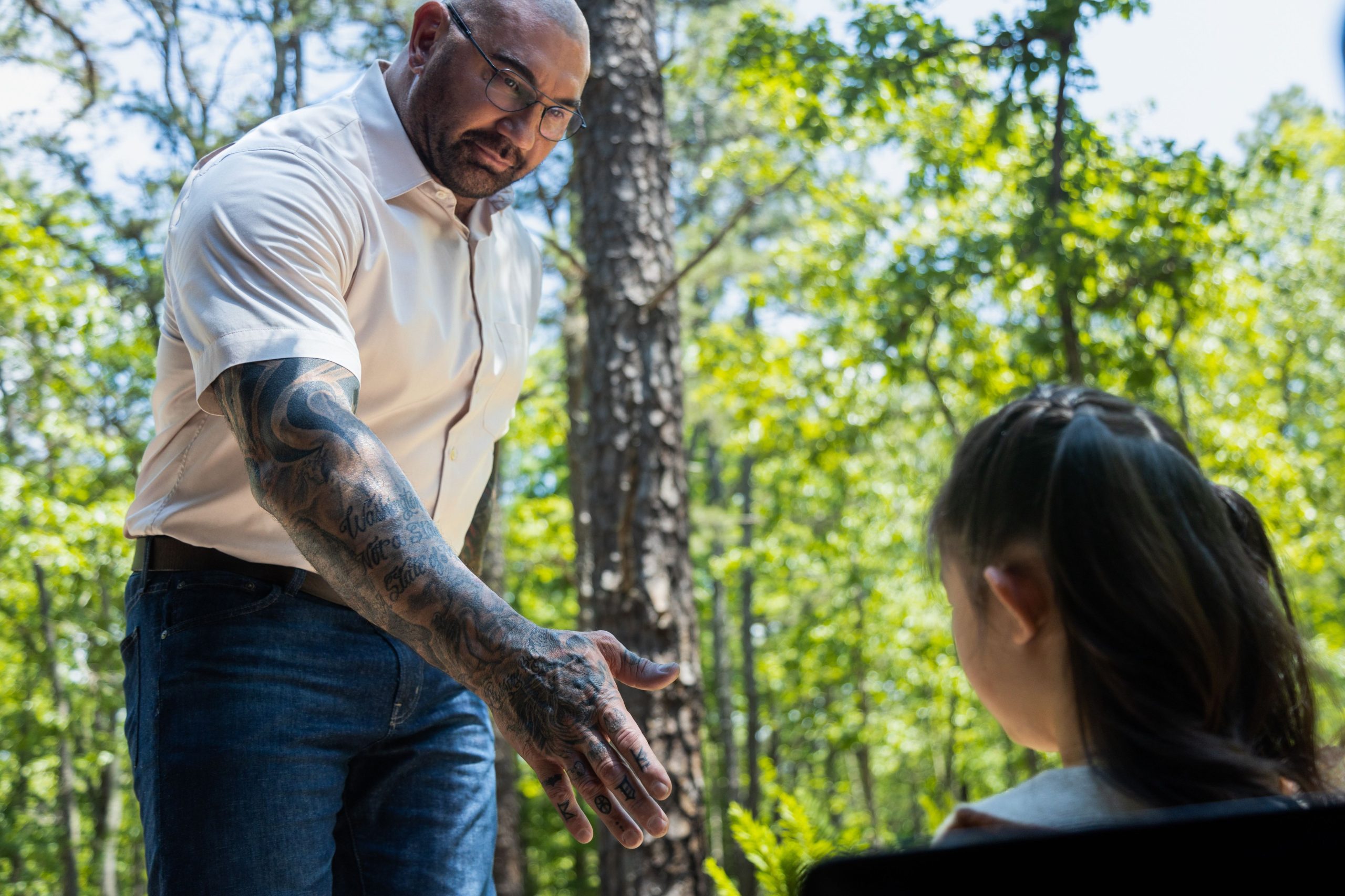
Knock at the Cabin. Credit: Universal Pictures
This becomes clear when he famously turned down a chance to join The Rock and John Cena in the Fast and Furious franchise. He stated in that same GQ chat that he’d “rather do good films”. Bautista appears to be less inclined to play on his wrestling persona than Johnson is.
Before Johnson and Bautista, there was a history of failed attempts to launch wrestlers as actors. Take wrestling legend Steve Austin (sometimes known by his occasional ring name “Stone Cold”); outside a cameo in Grown Ups 2 and a supporting role in the dad-movie epic The Expendables, he’s worked in the straight-to-DVD world. Other wrestlers like Triple H, Edge (not of U2), CM Punk and even Rowdy Roddy Piper are wrestlers who tried to cut it in movies but couldn’t find mainstream success. It takes a certain amount of magic that isn’t always available to wrestlers.
All of this finally brings us to John Cena. Cena is that perfect hybrid of a crowd-pleasing lead and someone who can sneak a surprising amount of emotion into his performances. Cena, when not proclaiming himself invisible, has quickly shown himself to be a capable leading man.
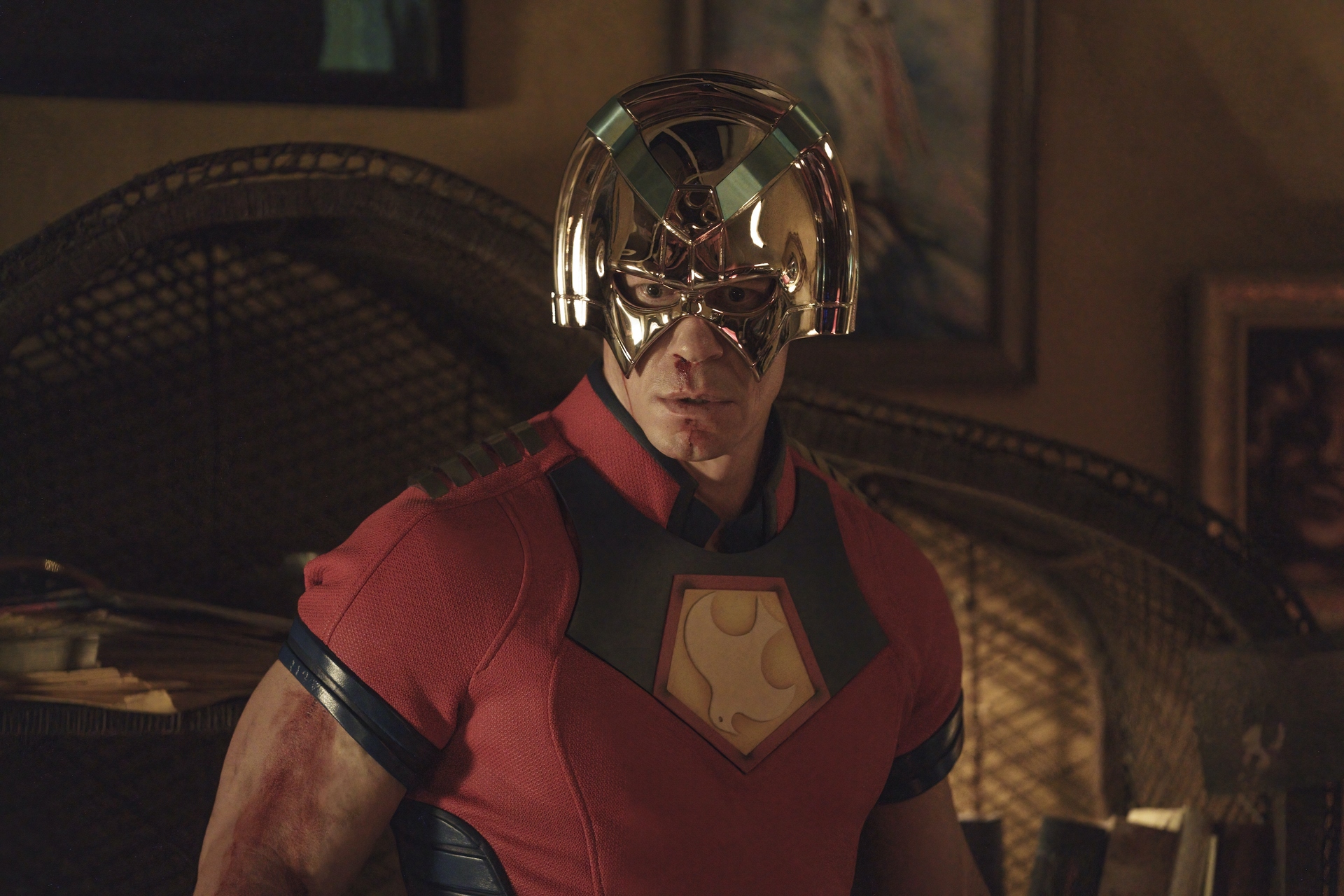
John Cena as Peacemaker. Credit: WarnerMedia Direct
Making his mark in the film properly with supporting roles in comedies Trainwreck, Sisters, Daddy’s Home 1 & 2 and Blockers, he has shown the world that despite being built like a brick wall, he can poke fun at himself. Even in franchise movies like Bumblebee, Cena has kept his tongue firmly in his cheek. His deadpan delivery of “They literally call themselves Decepticons, that doesn’t set off any red flags?” in Bumblebee shows he knows his roles.
Perhaps most importantly, his work as Peacemaker in the rapidly crumbling DCEU. Like Bautista and The Rock, Cena has joined a comic-book franchise. Still, in both The Suicide Squad and his eponymous series, Cena has layered his blowhard vigilante with a rare vulnerability among wrestlers. Cena isn’t afraid to let other people get the laughs, but moreover, he’s able to bare his soul and play with the inherent sexuality that comes with being a wrestler. Cena actively battles the toxic machismo of his past career by confronting it with humour.

Credit: Wrestler John Cena appears in the ring during the WWE Monday Night Raw show at the Thomas & Mack Center on August 24, 2009, in Las Vegas, Nevada. (Photo by Ethan Miller/Getty Images)
We may lament a lack of real movie stars in cinema these days, but with The Rock, Bautista and Cena, we see that wrestlers can either play to their personas, undermine them, or abandon them altogether. The question now is: what will they do next?



